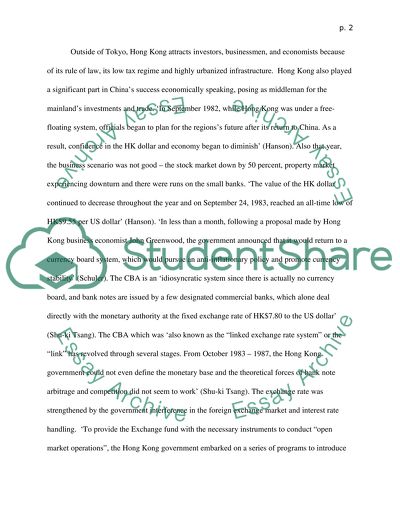Cite this document
(“What have been the costs and benefits of Hong Kongs Currency Board Essay”, n.d.)
Retrieved from https://studentshare.org/history/1414471-what-have-been-the-costs-and-benefits-of-hong-kongs-currency-board-system-since-1983
Retrieved from https://studentshare.org/history/1414471-what-have-been-the-costs-and-benefits-of-hong-kongs-currency-board-system-since-1983
(What Have Been the Costs and Benefits of Hong Kongs Currency Board Essay)
https://studentshare.org/history/1414471-what-have-been-the-costs-and-benefits-of-hong-kongs-currency-board-system-since-1983.
https://studentshare.org/history/1414471-what-have-been-the-costs-and-benefits-of-hong-kongs-currency-board-system-since-1983.
“What Have Been the Costs and Benefits of Hong Kongs Currency Board Essay”, n.d. https://studentshare.org/history/1414471-what-have-been-the-costs-and-benefits-of-hong-kongs-currency-board-system-since-1983.


